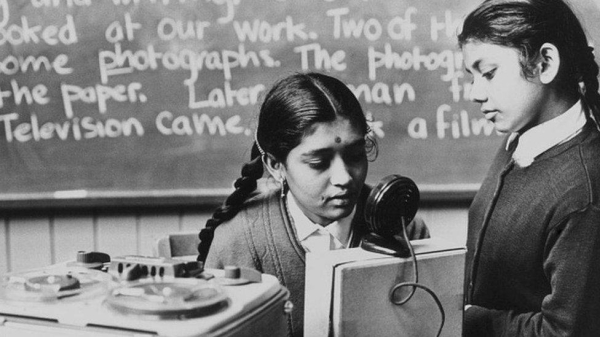
NEW DELHI — In 1967, India's Supreme Court ruled that holding a passport and traveling abroad was a fundamental right of every citizen.
It was a landmark decision because until then the passport was largely considered a document of privilege and would be given to only those who were "respectable" or "worthy" enough to represent India and "uphold its honor aboard".
For long the passport was regarded as a "civil credential" meant only for Indians of "means, education and standing", according to Radhika Singha, a historian at Delhi's Jawaharlal Nehru University. It was, therefore, not given to laborers who worked in Malaya, Ceylon (now Sri Lanka) and Burma (now Myanmar) and to the so-called "coolies", who comprised over a million Indians who migrated to all corners of the British Empire to carry out indentured labor.
"Such a stark delineation effectively made the Indian passport-holder as a state sanctioned, desirable representative of India, defined in opposition to the 'undesirable' 'coolie', a narrative that continued to shape India's passport regime after 1947," says Kalathmika Natarajan, a historian at the University of Exeter.
Dr Natarajan trawled through archives to find out more about India's discriminatory system of granting passports. Freedom from British rule did not alter things — the new post-colonial state, she says, continued to treat a "certain category of its own 'undesirable' citizens with much the same hierarchical, discriminatory lens as the colonial state".
This discrimination, Dr Natarajan notes, was deeply rooted in a mentality that traveling abroad involved "self respect and 'izzat' (honor) of India and could be only "undertaken by those possessing the right 'bit of India', so to speak".
So the government effectively called on officers to identify citizens who would not "embarrass" India abroad. It helped that state governments were in charge of issuing passports until 1954. By denying passports to most people, India also sought to construct a "desirable" diaspora.
As scholars like Dr Natarajan have found, this was also done in connivance with British officials to prevent the mobility of lower caste and class citizens seeking to emigrate to Britain after 1947. (The British Nationality Act of 1948 allowed Indian migrants to enter Britain freely after Independence — according to the law, Indian residents within and outside India were British subjects.) Officials in both countries constructed a category of Indians who were regarded — to varying degrees, by both sides — as "undesirable" for entry into Britain.
Both countries stood to gain. For the Indians, this meant choking the mobility of "unsuitable" lower caste and poorer Indians — the legatees of the "coolie" — who would likely "embarrass India in the West". For Britain, this would help stem the tide of "colored immigrants" and the "pedlar class" of Indians in particular, according to Dr Natarajan.
A 1958 internal report in Britain on the "problems" arising from the influx of colored immigrants noted the differences between West Indian immigrants who "are mostly of a good type who fit fairly easily into British society", and Indians and Pakistanis who "are greatly handicapped by their inability to speak English and their lack of any kind of skill". The class backgrounds of immigrants entering Britain from the subcontinent — "mostly unskilled simple peasants who knew no English" — seemed "ominous" to the British, Dr Natarajan says.
A British official belonging to the Commonwealth Relations Office in early 1950s said in a letter that Indian officials had "expressed undisguised pleasure" that the Home Office "found it possible to turn away certain would-be-migrants".
The most marginalized communities — like the "scheduled" castes or Dalits who account for more than 230 million of India's 1.4 billion population today — were denied passports along with political "undesirables" such as members of the Communist Party of India, scholars found. In the 1960s guidelines to provide passports to MPs, legislators and councillors without financial guarantees and security checks were flouted by denying passports to members of a raft of formerly secessionist regional parties like Dravida Munnetra Kazhagam (DMK).
There were many ways to restrict passports. Applicants had to sit for literacy — and English — tests, have enough money, and adhere to public health regulations. British Indian writer Dilip Hiro recounted that it took him six months in 1957 to secure a passport in India "despite having "good academic qualifications and financial references".
Such oppressive control led to unforeseen consequences: many Indians acquired forged passports. Following such a scandal, "illiterate or semi-literate Indians" who did not know English were briefly made ineligible for a passport between 1959 and 1960.
Clearly, for close to two decades, India's passport system for those who wished to travel to the West remained exclusionary.
This found a sudden echo in 2018 when Prime Minister Narendra Modi's government announced plans for a new category of "orange" passports — as opposed to the ubiquitous navy blue ones — for unskilled Indians with limited education "with a view to help and assist them on priority basis".
An outcry prompted the government to junk the proposal. Such a scheme, Dr Natarajan says, merely reflected India's "long-standing view of the international as a space for which the upper caste and class Indians were deemed best-suited". — BBC